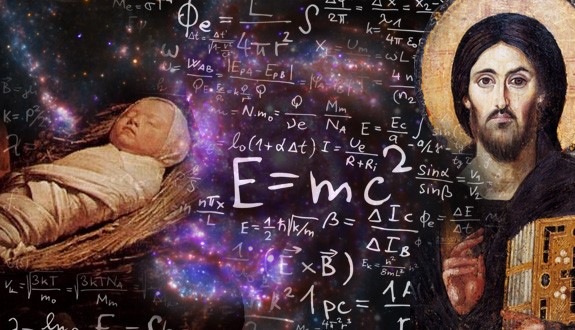By: Sherene Khouri, Ph.D. | May 6, 2022
Editorial Note: We give our readers the opportunity to ask questions of our staff concerning theology, apologetics, philosophy, and the Bible. Some of the questions are answered on the podcast, whereas others are addressed in articles. If you have a question that you would like to ask the Bellator Christi Team, go to https://bellatorchristi.com/submit-a-question-to-bellator-christi/ and fill out the form. Your question could be featured in a future article on BellatorChristi.com or an episode of the Bellator Christi Podcast.
Question:
“If Jesus is God, why did He not know when He would return?” -Anonymous.
Answer:
Some skeptics and even Christians present the following question regarding the knowledge of Jesus. “If Jesus is God, why he did not know when he would return?” According to Mattew 24:36, Jesus seems not to know the hour and the day of his coming. “But concerning that day and hour no one knows, not even the angels of heaven, nor the Son, but the Father only” (Matthew 24:36).[1] This idea is also echoed in Mark 13:32 “But concerning that day or that hour, no one knows, not even the angels in heaven, nor the Son, but only the Father.” The superficial reading of the text might show that Jesus does not know the time of His coming because the Father has not disclosed it; however, this understanding is problematic for those who claim Jesus is God. This article argues that Jesus does know about the timing because He presented many details about that day, but it is the type of knowledge that should not be announced.
The Divine Knowledge
The divine knowledge in the Christian worldview includes past, middle, and future knowledge. God knows everything that had happened, would have happened, and will happen. However, divine knowledge is not always announced, and at some times it is announced in expected and unexpected ways (through humans or miracles).
There are some places in the Bible where the superficial reading of the text implies that God is requesting information or seeking to learn something about the person or the situation. For instance, in Genesis 3:8-11, after the fall of Adam and Eve, God asks Adam “where are you?” as if God does not know where Adam is. Later in the text, God asks Adam “Who told you that you were naked? Have you eaten of the tree of which I commanded you not to eat?”
God’s question might be understood as if God does not know that Adam ate from the tree, and He is making sense of Adam’s disappearance. But a deeper look into the text reveals that God is not asking Adam about his location but getting him to confess what he has done. In other words, God asking a question is not done to acquire extra knowledge (because He does not know), but to have human beings confess their sins.
A similar example happens when God wrestles with Jacob in Genesis 32:24-30. God asks Jacob “what is your name?” Does God not know what Jacob’s name is? Of course, He knows, but the answer lies in verse 28 when He says, “Your name shall no longer be called Jacob, but Israel, for you have striven with God and with men, and have prevailed.” God does not ask this question because He does not know the answer, but because He wanted to declare himself to Jacob. In verse 30, Jacob says, “I have seen God face to face, and yet my life has been delivered.” Jacob knew right away after this incident that he was wrestling with God. This is all to say that God does not acquire extra knowledge, but He knows everything. The superficial reading of the text might give the wrong impression about the knowledge of God.
The Different Types of Knowledge
Not all knowledge about a topic is equal or the same. According to the Dictionary of World Philosophy, there are three types of knowledge: a) Factual knowledge: it can also be called propositional knowledge. It is the knowledge of facts or a set of propositions that provides information. b) Procedural knowledge: this knowledge is practical. It is acquired through education, learning, and practice. It is expressed by “how to” clauses—a person knows how to ride his bicycle.[2] c) Knowledge by acquaintance, which is the knowledge of people, places, and things.[3] For instance, Susan knows that Alyssa is a musician (the propositional knowledge) is different from Suan knowing Alyssa because she is her sister (personal knowledge).
Jesus said to the Jews who believed in Him, “If you abide in my word, you are truly my disciples, and you will know the truth, and the truth will set you free” (John 8:31-32). The Jews were not appreciative of what Jesus said because they thought that they knew the truth. The truth to them is God, and they know the name of God and His commandments. They consider themselves the children of Abraham and free men who were never slaves.
However, Jesus was instructing them to abide in the word not in a propositional way, but in a practical way. He was not emphasizing the propositional knowledge that they have, but the procedural knowledge they should acquire lest they followed the propositional knowledge. Jesus knew that they are the children of Abraham, and they were never slaves, but He meant those who make sin are slaves to sin. They are not free because they know God. They are slaves because they commit sin. Those who know God propositionally are still slaves to sin until their knowledge is manifested practically.
Additionally, the Bible reveals two types of divine knowledge: what is announced and what is not announced. God in His provision chooses to declare some of the world’s secrets, He leaves other information for human beings to discover on their own, and He announces other data expecting human beings to react to it. As Moses states, “The secret things belong to the LORD our God, but the things that are revealed belong to us and to our children forever, that we may do all the words of this law” (Deut 26:26).
This is to say that there is secret information that God chose not to declare and other knowledge that God revealed. In real life, I remember an incident that happened to me, which illustrates the non-announced type of knowledge. When I was in graduate school taking a biblical language class, I asked the professor during the exam review will this question be on the exam and she said, “I don’t know.” Of course, the professor knew what questions are on the test, but she could not tell me what those questions are. It is not the type of knowledge that should be announced.
Jesus’s Knowledge about the Last Day
Jesus knows everything because the Father has told Him. Jesus states, “All things have been handed over to me by my Father, and no one knows who the Son is except the Father, or who the Father is except the Son and anyone to whom the Son chooses to reveal him” (Luke 10:22). Jesus knows the nature and the will of the Father. This factual knowledge was given to Him by the Father Himself.
Certain Type of Knowledge Jesus Declared
There are several examples in the Gospels where Jesus claims not to have knowledge about the last day, but the context reveals that He does know. Referring to the day of judgment, Jesus says, “On that day many will say to me, ‘Lord, Lord, did we not prophesy in your name, and cast out demons in your name, and do many mighty works in your name?’ And then will I declare to them, ‘I never knew you; depart from me, you workers of lawlessness’” (Matt 7:22-23).
Jesus knows what will happen on the day of judgment. He explains what will happen to certain people. Many people will claim to be His followers, but He will say to them that He never knew them. The phrase, “I never knew you” is an example of personal knowledge, whereas the claims about these people confessing their knowledge and belief in Jesus is propositional knowledge. Jesus presents that He has factual knowledge about the last day, but what He does not know is the personal knowledge of some people who will be raised on that day.
On the same eschatological occasion, Jesus gives the parable of the 10 virgins. The five virgins who left the wedding to buy more oil because theirs was about to finish, were cast out of the marriage feast. Jesus tells them, “Truly, I say to you, I do not know you” (Matt 25:1-13). This is another incident where Jesus gives propositional knowledge about the last day (the marriage feast), but He claims not to know some people with personal knowledge.
There is an example in the Gospels where Jesus pretends not to know certain information, but the context shows that He does know. When Jesus speaks with the Samaritan woman and tells her to call her husband, the woman answered Him, “I have no husband.” Jesus said to her, “You are right in saying, ‘I have no husband’; for you have had five husbands, and the one you now have is not your husband.” (John 4:16-18). Jesus knows that the woman is not married, and she is living an adulterous life.
Jesus did not deceive the woman by giving her false information, but He presented her with a different kind of information in order to see how she would react. This incident shows that Jesus knew (propositional knowledge and personal knowledge) but He pretended not to know because of a particular purpose. It was His way of declaring His divinity to a sinful woman and waiting for her response.
Certain Type of Knowledge Jesus Concealed
Jesus teaches His disciples to be ready, watchful, and attentive to the last day because they did not know the precise time of His return. He instructs His disciple not to marvel about the last day (John 5:28-29). Apostle Paul reminds his audience that “the day of the Lord will come like a thief in the night” (1Thess 5:2). The same idea is repeated by Peter and John (Rev 3:3 & 2 Peter 3:10). If Jesus was ignorant about the end times, how could He be so specific in giving so many details?
The information about the last day lies within the realm of divine knowledge. Since the Bible is clear that the day of the Lord will be revealed at that moment, it is reasonable to think that the exact timing of that day is not meant to be revealed. Jesus tells His disciples, “It is not for you to know times or seasons that the Father has fixed by his own authority (Acts 1:7). He also told His disciples who were asking questions concerning judgment that “I still have many things to say to you, but you cannot bear them now” (John 16:12). This knowledge belongs to the Father, it is not revealed yet, and it might not be revealed in the near future because people cannot bear it. People are expected to be wise servants while watching for the Master’s return.
Jesus’s knowledge about the hour and the day is not factual knowledge but is related to the knowledge that cannot be declared right now. There will be a time in the future when Jesus Himself will announce and execute his coming. He tells the disciples, “I have said these things to you in figures of speech. The hour is coming when I will no longer speak to you in figures of speech but will tell you plainly about the Father” (John 16:25). It is the role of the Son to fulfill that day and hour. Jesus declared repeatedly that He will not act independently of the Father (Matt 26:42; John 8:28; John 12: 49-50). Jesus speaks and acts only as the Father has directed and instructed Him.
Conclusion
Jesus as shown in different places in the Gospels uses the word “to know” in two different senses. On the one hand, He teaches that the disciples cannot, should not, and will not “know” the precise day or hour of His coming. On the other hand, Jesus “not knowing” belongs to His submission to the Father in regard to the timing of His return. It is not His call to determine or to announce the day of His coming (this role belongs to the Father). It is not the business of the disciples to know, nor the role of the Son to declare. It is not that Jesus’s human nature that limited His knowledge, but that His role and function in the Trinity is not to declare timing.
About the Author
 Sherene Khouri earned her Ph.D. in Theology and Apologetics from Liberty University. She is the second female to graduate from the program. She also holds a Master of Arts in Christian Apologetics from Liberty University and a Bachelor of Science in Biblical Studies from Moody Bible Institute. She is also working on a Master of Theology in Global Studies at Liberty University. Sherene Khouri was born into a religiously diverse family in Damascus, Syria. She became a believer when she was 11 years old. Sherene and her husband were missionaries in Saudi Arabia. Their house was open for meetings and they were involved with the locals until the government knew about their ministry and gave them three days’ notice to leave the country. In 2006, they went back to Syria and started serving the Lord with RZIM International ministry. They travel around the Middle Eastern region—Turkey, Jordan, Egypt, Lebanon, Syria, and United Arab Emirates. Sherene was also involved in her local church among the young youth, young adults, and women’s ministry. In 2013, the civil war broke out in Syria. Sherene and her husband’s car was vandalized 3 times and they had to immigrate to the United States of America. In 2019, Sherene became an American citizen. Her specialty of study is answering Islamic objections to the Christian faith.
Sherene Khouri earned her Ph.D. in Theology and Apologetics from Liberty University. She is the second female to graduate from the program. She also holds a Master of Arts in Christian Apologetics from Liberty University and a Bachelor of Science in Biblical Studies from Moody Bible Institute. She is also working on a Master of Theology in Global Studies at Liberty University. Sherene Khouri was born into a religiously diverse family in Damascus, Syria. She became a believer when she was 11 years old. Sherene and her husband were missionaries in Saudi Arabia. Their house was open for meetings and they were involved with the locals until the government knew about their ministry and gave them three days’ notice to leave the country. In 2006, they went back to Syria and started serving the Lord with RZIM International ministry. They travel around the Middle Eastern region—Turkey, Jordan, Egypt, Lebanon, Syria, and United Arab Emirates. Sherene was also involved in her local church among the young youth, young adults, and women’s ministry. In 2013, the civil war broke out in Syria. Sherene and her husband’s car was vandalized 3 times and they had to immigrate to the United States of America. In 2019, Sherene became an American citizen. Her specialty of study is answering Islamic objections to the Christian faith.
Notes
[1] Unless otherwise noted, all biblical passages referenced are in the English Standard Version (Wheaton, IL: Crossway, 2008).
[2] “Epistemology.” Encyclopedia of Cognitive Science, accessed April 22, 2022. http://ezproxy.liberty.edu/login?url=https://search.credoreference.com/content/entry/wileycs/epistemology/0?institutionId=5072
[3] “Epistemology,” Dictionary of world philosophy. Routledge. Credo Reference, accessed April 28, 2022. http://ezproxy.liberty.edu/login?url=https://search.credoreference.com/content/entry/routwp/epistemology/0?institutionId=5072.
Copyright, 2022. BellatorChristi.com.






How long do you recommend skeptics to study the differences between Christian scholars on the subject of exhaustive divine knowledge and open-theism, before we reach the point at which we can be reasonable to start drawing conclusions as to which camp is more “biblical”?
Or must we be spiritually alive before we can beneficially distinguish orthodoxy from heresy?
And what will god do to protect these inquiring skeptics from going to hell while they remain within this transitory “I’m-not-a-believer-but-I’m-still-researching-Christianity” phase?
[…] Source: The Knowledge of Jesus […]